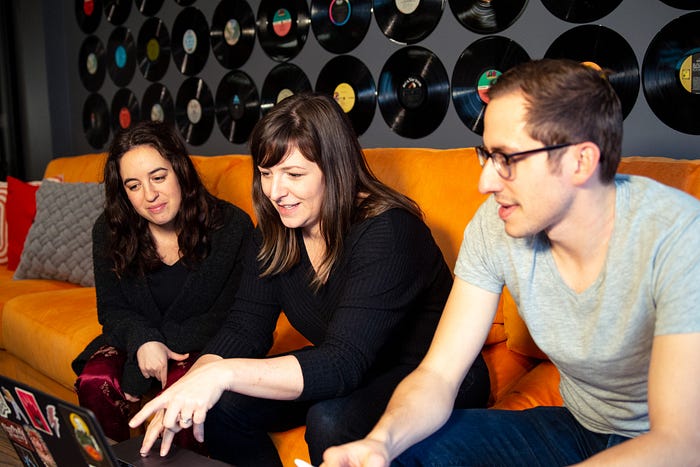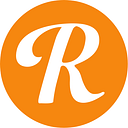From the Source: Lessons in Reverb Culture with Tasia Carroll
We sat down with UX Designer Tasia Carroll to talk about what it’s like working on the Product & Engineering team at Reverb.

In 15 words, what do you do at Reverb?
I work with our product and development teams to ensure that customer feedback and insights translate into product improvements.
What’s your preferred gender pronoun?
She/her
Describe your product: What problem is it solving? Why is it interesting and useful for customers?
Reverb is making it easier for music makers and retailers of all shapes and sizes to buy and sell musical instruments — particularly used and unique music gear that you can’t find anywhere else. Our community is unlike any other that I’ve ever worked with. Our users are all connected by a shared love of music and they’re extremely passionate about what they’re buying and selling. Like people, instruments have a story and that story gets richer as the instrument is passed from person to person — we’re helping people buy, sell, and celebrate gear over and over again.
Why do you love about working on the product and tech at Reverb?
Reverb is an eCommerce site, but it’s also a supportive community for the people who use it to buy, sell, and learn — and that translates to our team. We make time each week to meet to discuss challenges, share insights, and get help from one another — we know that supporting each other will only help Reverb and our entire team succeed. For example, when I have questions about the front-end code of our site, my team is always willing to set time aside to explain how it works. As a UX designer, this helps me understand what suggestions are realistic for my team to build out.
You’re working on a platform that has a very passionate fanbase, and you’re working with those fans to get feedback and input for Reverb. Can you speak to the passion behind the product and how you put your users at the center of the Reverb universe?
Many of our users truly rely on Reverb — for income to support their families, the perfect instrument for their next song, and inspiration to fuel their passions. It’s exciting to work on a product that makes it easier for people to express themselves or make a living through music. As a music enthusiast myself, I understand the personal nature of the musical instruments our community is buying and selling. We make every decision — from product improvements to new services — with our passionate fanbase in mind.
What’s the most interesting thing you or your team has worked on since you’ve joined? Or, alternatively, what’s the most interesting problem you’ve solved?
In a guitar store, it’s not out of the ordinary to see a customer negotiating with a store employee, so the ability to make offers is something we’ve built into the Reverb platform. Last year, we wanted to understand how we could encourage buyers to make offers to sellers, so I ran some usability tests. We discovered that online buyers were worried that making an offer will offend sellers, so we incorporated tools and messaging aimed at educating buyers on offers, including how much to negotiate. The fact that buyers were worried about upsetting sellers shows how much empathy strangers can have for each other — even online.

Last year, we wanted to understand how we could encourage buyers to make offers to sellers, so I ran some usability tests. We discovered that online buyers were worried that making an offer will offend sellers, so we incorporated tools and messaging aimed at educating buyers on offers, including how much to negotiate.
What’s the most interesting challenge, technically, about the tech or product work you do?
Millions of music makers from all over the world use Reverb to buy and sell gear, which means we have tons of fascinating data and insights from our users. It’s been challenging and rewarding to learn how to sort through all of our customer feedback to find the most effective solutions. Our users are extremely passionate and they have tons of great ideas and my job is to evaluate what improvements and solutions will make the biggest impact on the most users.
Tell us about learning and career growth opportunities at Reverb.
I’m a naturally curious person — I was initially drawn to Reverb because I could tell that it was an environment where I could continue to learn and develop my career. There’s a general understanding across the team that to grow our platform into the best place for buying and selling music gear, we have to grow our people. As an example, I want to learn front-end code to help me better understand and communicate with our dev team. My manager is helping me carve out the time and resources I need to develop those skills.
From a UX perspective, or from a larger product perspective, why were you attracted to Reverb? Why should others feel compelled to come and work alongside you?
Reverb is a place where you can have a real impact on the product and, most importantly, see the positive impact your work has on the people who use it. I’ve heard stories of brick-and-mortar retailers that have been able to keep their doors open because of Reverb or entrepreneurs who felt empowered to start a business because of Reverb. Music makers from beginners to Green Day use Reverb to find unique gear and pass used gear onto the next player. Those real-life stories inspire you to do your best every day.
Interested in working with Tasia or on the Product & Engineering team? Apply here.
